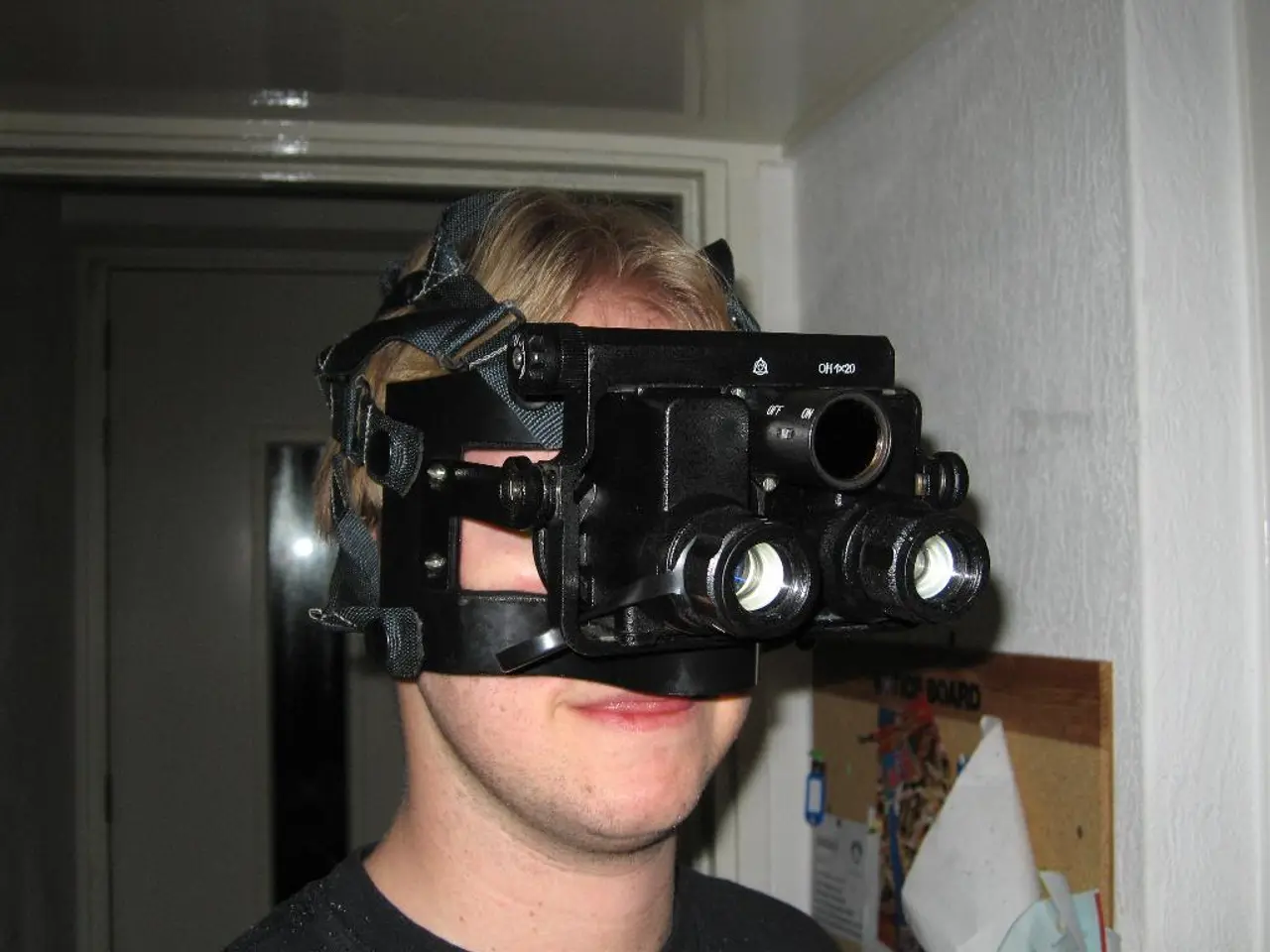Anxiety potentially leading to numbness?
In the realm of physical sensations, numbness can be a puzzling and concerning experience. This article aims to shed light on the various causes of numbness, with a particular focus on anxiety-induced numbness and its differences from numbness caused by nerve damage, spinal injuries, circulation problems, or nutritional deficiencies.
When anxiety takes hold, the body's response can sometimes manifest in unexpected ways. One such symptom is numbness, which may occur due to hyperventilation or heightened neurological sensitivity caused by stress and anxiety. This type of numbness, often transient and linked to psychological states, is typically experienced as tingling or numbness sensations, especially in extremities like the feet or hands [1][2].
On the other hand, numbness caused by nerve damage (neuropathy) or spinal cord injuries involves direct neuronal injury or dysfunction. Conditions such as diabetes or vitamin B12 deficiency can cause malfunction or degeneration of nerves, leading to persistent numbness, tingling, and sometimes muscle weakness [4]. Circulatory issues and nutritional deficiencies, particularly of B vitamins, can also impair nerve function and repair, resulting in chronic or progressive neurological symptoms including numbness [4].
It's important to note that anxiety disorders can also cause physical symptoms, including numbness and tingling. Treatment for anxiety-induced numbness often focuses on addressing the underlying cause of the anxiety, whether through antianxiety medication, psychotherapy, self-care strategies, grounding or breathing exercises, support from family and friends, or education about anxiety [3]. However, if a person's anxiety improves but the numbness does not, or if the numbness is constant, persistent, or seems to be getting worse, they should seek medical attention [3].
Moreover, numbness can be a symptom of other conditions, such as carpal tunnel syndrome or alcoholic neuropathy due to excessive alcohol use [5]. In such cases, it's crucial to consult a healthcare professional for proper diagnosis and treatment.
In summary, understanding the cause of numbness is key to appropriate treatment. Anxiety-induced numbness differs primarily in its physiological mechanism, duration, and association with psychological stressors. Numbness from nerve damage, spinal injuries, circulation problems, or nutritional deficiencies, on the other hand, reflects structural nerve injury or dysfunction and tends to be more chronic and physically rooted [4].
Remember, if you're experiencing numbness, it's always best to consult a healthcare professional to determine the cause and appropriate treatment.
References: [1] Hyman, M. (2018). The 3 Stages of Adrenal Fatigue. Retrieved from https://drhyman.com/blog/2018/march/3-stages-of-adrenal-fatigue/ [2] Mayo Clinic Staff. (2021). Anxiety: Symptoms and causes. Retrieved from https://www.mayoclinic.org/diseases-conditions/anxiety/symptoms-causes/syc-20365137 [3] Anxiety and Depression Association of America. (2021). Treatment. Retrieved from https://adaa.org/learn-from-us/from-the-experts/blog-posts/consumer/treatment-for-anxiety [4] National Institute of Neurological Disorders and Stroke. (2021). Peripheral Neuropathy Fact Sheet. Retrieved from https://www.ninds.nih.gov/Disorders/Patient-Caregiver-Education/Fact-Sheets/Peripheral-Nerve-Disorders-Fact-Sheet [5] Mayo Clinic Staff. (2021). Alcoholic neuropathy. Retrieved from https://www.mayoclinic.org/diseases-conditions/alcoholic-neuropathy/symptoms-causes/syc-20364615
Predictive analytics in health-and-wellness and mental health sectors could potentially identify individuals at risk for anxiety disorders, thereby enabling treatment strategies to be implemented early and reducing the likelihood of anxiety-induced numbness. Such anomaly detection models could evaluate patterns of stress and psychological symptoms, potentially detecting subtle changes that may signal the onset of an anxiety disorder.
Advances in science and technology have allowed for more sophisticated and nuanced understanding of the complex relationships between mental health, physical symptoms, and various psychological factors, such as depression and anxiety. Understanding these connections is important in developing predictive models to better diagnose and treat mental health conditions, ultimately contributing to improved overall health and wellness.
Recognizing the link between anxiety-induced numbness and mental health, health-and-wellness professionals should be equipped with the knowledge to provide comprehensive support to individuals who may be at risk. Regular monitoring of mental health symptoms, as well as the awareness of associated physical symptoms like numbness, can improve early detection and intervention for those suffering from anxiety disorders.




